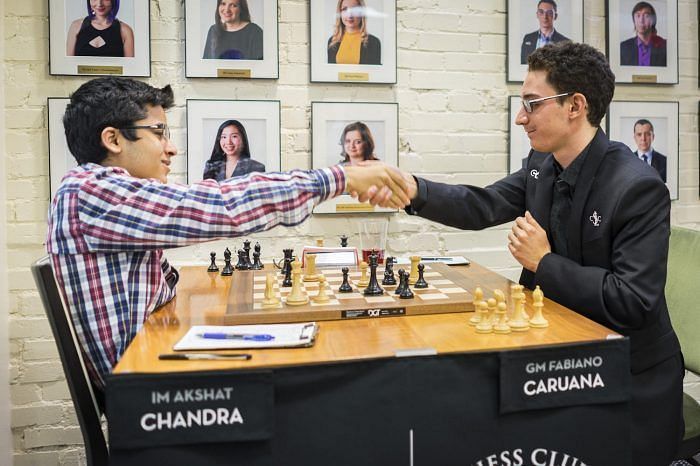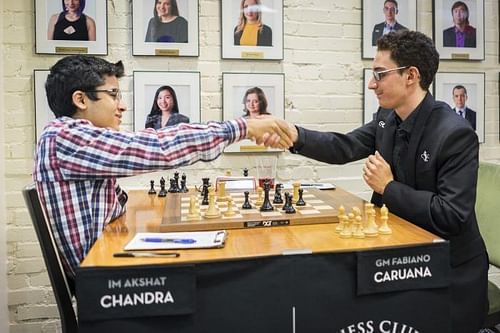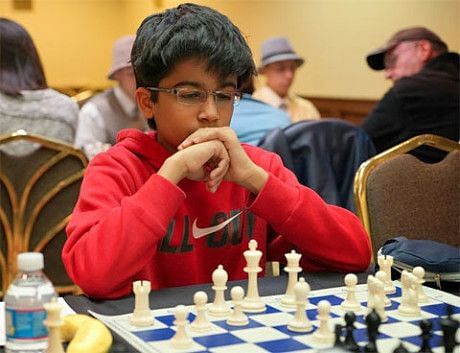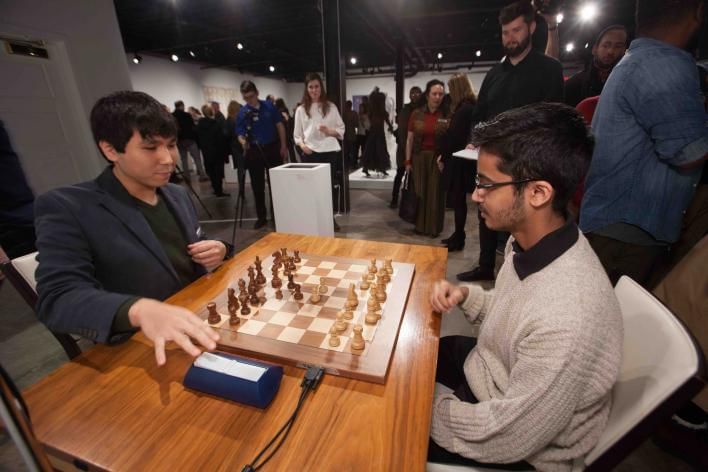
Indian origin prodigy Grandmaster Akshat Chandra on Chess, education and more

Akshat Chandra became a Grandmaster in 2017 when he was officially awarded the title by FIDE. He started playing the game when he was nine and a half years old when his family had relocated to India for a while.
In an age when we already see Grandmasters at 12, Akshat had a considerably late introduction to the game. However, he has recorded one of the fastest rises in the history of the game, from his starting Elo of 1500+ to 2500+ in just under five and a half years.
This was achieved when the FIDE still maintained the K factor rating change within 20 and not the current 40, which multiplies the rating change by a whopping amount. Akshat is now studying at the Saint Louis University in the United States where he was recruited as a part of the Chess team headed by Grandmaster Alejandro Ramirez. In this interview, I catch up with the youngster on his past, present, and what he thinks about going into his future.
Q1. Let's start by talking about your early years and then your meteoric rise to the top from a 1500 to a 2500 Grandmaster. How did you manage this record breaking feat in such a short span of time and that too on the original K-factor rating levels where there wasn't much of a difference made by just one game like with the new rule?
Thank you for interviewing me. Regarding my rise, I, honestly, don't know what exactly it can be attributed to. Maybe, it was due to the natural talent I had for the game combined with hard work.

Q2. It's when you were in India when I had a chance to meet and play with you. Can you expand more on your experience here? How did you first come here and then once you got acquainted with the game how did you practice?
When I was around 8, my parents decided to relocate to India. It was quite an adjustment period for me as life there was vastly different from that of in the US. Shortly after the relocation, I picked up chess from a friend and instantly became obsessed with it. Early on, I focused entirely on the middle and endgame concepts. My opening knowledge was minimal.
Q3. I remember you had told me that you did home schooling from a very young age. Can you talk more about this? You have now also received a chess scholarship at the Saint Louis University, USA. Can you please share your experience of how you heard about it, what made you apply, and how's it going currently for you?
That's correct! I was homeschooled for most of my life. It allowed for great flexibility, and I was able to pour more time into chess, which was all I cared about. Back in 2016, I received an email from the SLU Chess Team Coach, GM Alejandro Ramirez, who expressed an interest in recruiting me for the team's inaugural year. I deferred at the time since I was focused on being a professional player, but I reconsidered in late 2018 and decided to join after all. It's certainly been an adjustment after many years outside of a rigorous academic setting, and my freshman year was a big challenge. However, I'm optimistic about the future.
Q4. You have won a lot of the most prestigious junior invitational events in the US. You have also been on the US Junior teams for a long time now, also getting a chance to train under world champion GM Garry Kasparov. Could you tell us in more detail about the current US Chess scenario, your highest and lowest moments in these events, and your overall experience of playing in US Chess events?
I never trained under Kasparov but was invited for some sessions where he analyzed our games and provided his comments.
I'd say chess in the US has become increasingly popular in these last few years. Most of this can be attributed to the work of Rex and Jeanne Sinquefield. They've really changed the landscape of American chess by providing professional playing conditions and increased prize funds in prominent tournaments such as the US Championship, the US Junior Championship, etc.
However, apart from these tournaments, the experience of playing chess in the US isn't that great. Many tournaments are poorly organized, and the scheduling is horrendous as well. Single round days are a rarity here, and 9 rounds are usually crammed into 5 days.
Q5. When you were young, I would see you travel with your father for most tournaments and events. How important has the role of your family been in the process of making you a GM? Also, when you wanted to become a full-time professional chess player how supportive were they of your decision?
My parents have always been very supportive of me, which is something I've always appreciated. They supported my decision to play chess professionally, going as far as to move with me to Saint Louis in order to provide better opportunities. They were also supportive of my decision to join a university.
Q6. You were also given the US Chess Scholar Player Award. This is given for excellence in chess, academics, and volunteer work. Can you please elaborate more on what your experience was, first to apply for this prize and then to get it?
I was quite surprised to have won the US Chess Scholar award as my academic résumé wasn't anything special. However, I suppose my chess achievements shone through and gave me the upper hand over other applicants.
Q7. Can you talk about your current practice routine while you're studying as a university student? Do you think that academics and chess can be balanced at such a high level? Also, what would be your near future goals in the next say maybe two to three years?
I have not studied chess for months, as I've been consumed by school work. However, this is also largely by choice. At the moment, I prefer to apply my spare time to other areas where I am lacking. I missed out on a lot by being homeschooled for chess, and I am trying to make up ground. I don't know whether or not it's possible to balance chess at a high level and academics, but I suppose if one has a desire to then why not?
Q8. Finally, what advice would you offer to those who want to follow in your footsteps and pursue their chess at a higher level?
I would say the most important thing is to make sure the process of training and playing remains enjoyable. I'd also advise not to get too attached to chess and see it as the only thing in your life. This was a mentality that I had for many years, and I think it gives you a tunnel vision. Give it your best shot, and if things don't work out there are always other things in life!
